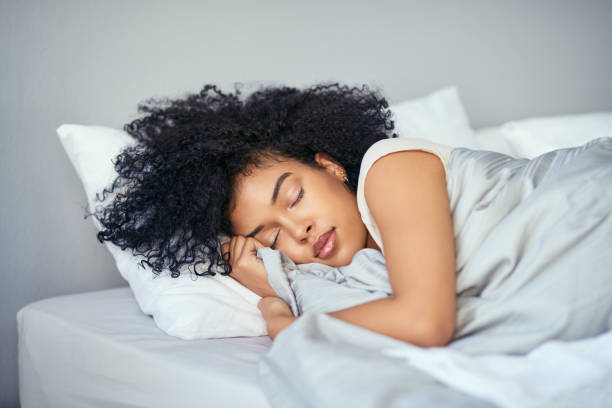
People take vacations for a variety of reasons. Sometimes, they want to explore a new experience, have fun at a different location, or simply enjoy some time away from their daily grind. What about a vacation dedicated to barely leaving your bed, though? Well, more and more adults are opting for a type of vacation known as a sleepcation, where they desperately try to get the rest they’ve been missing in their daily lives.
What’s a Sleepcation?
As the name suggests, a sleepcation is a vacation that’s dedicated to getting some well-needed relaxation. The difference between this and a regular vacation is that the whole trip is built around getting you to sleep well. This can mean special beds, a built-in bedtime routine, or even moderate activities during the day that are meant to promote a good night’s sleep. In some cases, you may leave the destination with a whole new personalized program that will encourage better sleep when you get home.
The cost of a sleepcation can vary drastically, though, so it’s a good idea to do some research before you take the plunge. A few factors that can influence how much your trip costs include the destination, the accommodations, the activities included in the package, and how long you plan to stay.
When planning a sleepcation, it may be helpful to see what’s available at the lowest price point and work your way up from there.
RELATED: 7 Reasons Why You Can’t Sleep
The Available Options
The sleepcation options are always expanding as more and more destinations aim to participate in the growing trend. Depending on your budget, you can find sleepcations at resorts that are friendly to your pocket as well as higher-end resorts. There are even retreats that are focused solely on getting some sleep.
Variations on pricing are usually due to what’s being offered. At the lower end of the scale, you may find places that have soundproof rooms, blackout curtains, eye masks, and white noise machines. Others have herbal teas or different beverages that have been proven to encourage sleep. At the higher end, you may access special full-body massages that are meant to relax you before going to bed.
Some hotels also have smart technology-equipped beds that can track how long you sleep, the amount of restful versus restless sleep, your heart rate, your breathing rate, and more. In this case, you may leave the sleepcation with helpful information that you can give to your doctor. This information may signal that an undiagnosed condition is the cause of your poor sleep.
If you need more expert guidance on getting some sleep, then consider a sleep retreat instead of just booking a hotel. These retreats usually have dedicated programs to helping you sleep better. They may have daily relaxation activities like yoga, meditation, aromatherapy, or sound therapy that can help you sleep better. Some retreats also encourage you to take breaks from your devices so you can focus on more mindful activities like journaling.
Of course, if you’re not ready to jump into a multi-night sleepcation, experts recommend taking a napcation. A napcation is simply going to a hotel that offers the option for a few hours during the day. Their dedicated rooms are designed to help you have a good nap that can boost the rest of your day.

Why Americans Find Sleepcations Attractive
The simple answer to that is: Americans are experiencing worsening sleep. Generally, you should be able to fall asleep within 20 minutes of your head hitting the pillow, and the recommended amount of sleep for adults from 18 to 64 is seven to nine hours. However, a recent survey by WebMD painted a different reality for many Americans.
According to the survey, only 63 percent of the participants reported being in bed for almost seven hours, but that didn’t mean they were sleeping. The average time spent asleep was a little over five hours. Additionally, most of the respondents spent two hours awake before finally falling asleep, and only 23 percent of them were able to get to sleep within 20 minutes.
To make things worse, most Americans have a lot of trouble staying asleep. When completing the survey, only 10 percent were able to say that they never woke up during the night. For many of the respondents, they woke up earlier than desired and were unable to get back to sleep.
Missing sleep not only leaves you tired, but it can also lead to chronic illnesses. Studies show that not getting enough sleep can put you at risk for heart disease, stroke, obesity, diabetes, and mood disorders. Of course, for some people, sleeping well isn’t as easy as it seems because of sleep disorders and other chronic conditions.
For example, if you have an enlarged prostate or large fibroids that press on your bladder, you’re more likely to get up at night to use the bathroom. However, the data from a smart-technology bed might highlight an issue that you’ve been ignoring because it doesn’t seem as bad when you’re at home.
The growing interest in sleepcations shows that Americans are finally taking their sleep as seriously as they should.
RELATED: 6 Habits That Will Give You the Best Sleep of Your Life!
Possible Pros and Cons of a Sleepcation
Even at the lowest budget, making some time for a sleepcation can get you some much-needed rest. While getting a few good nights’ sleep might not undo every aspect of how poor sleep has affected your health, it can give you a reset. In this case, you’ll be rested enough to start fresh. This benefit is one of the reasons experts say a lot of the people opting for sleepcations are parents of young children.
When you have children, regular vacations are rarely restful. Some people leave these trips feeling even more tired than they were before. Taking a sleepcation gives them a chance to finally relax.
Another possible benefit of a sleepcation is that you can learn habits that you can take with you into the real world. Though you may have heard of a bedtime routine, you might not know where to start. If you go into the sleepcation to learn what may work for you, it can open up a new world of restful sleep for you.
Even simple changes like learning how to relax before bed, using different sheets, not eating before bed, getting an eye mask, and using certain scents in your room can make a difference. If your budget allows, cooling the room or changing your mattress might be achievable, too.
Finally, if you opt for the smart-technology beds, you can get a data-driven picture of how poorly you’re sleeping. Depending on what’s causing you to sleep poorly, you may be able to see how your sleep changes over a brief period when you focus on sleeping well. This information can also be helpful to your doctor.
On the flip side, some doctors are concerned that sleepcations aren’t all they’re cracked up to be. They’re concerned that booking a sleepcation only gives some people temporary relief because they can’t replicate everything it took for them to enjoy a restful night’s sleep when they get home. There’s also the concern that the knowledge will only increase the likelihood of these people becoming more depressed with their situation.
Additionally, some doctors worry that sleepcations are only a band-aid to a larger problem. Though you may feel rested after a few good nights, you only reap the long-term health benefits of sleeping well when it happens consistently. Sleepcations may lull people into a false sense of good health when nothing significant has changed.
Unless you’re prepared to change your sleep habits permanently, some doctors recommend consulting your doctor instead. It’s not as flashy, but they may be able to provide insight into what’s affecting your sleep and give you pointers about sleeping better.
Sleepcations are trending, and travel experts estimate that they’re only going to get more popular. If you’d like to check one out, make sure to do your research so you find one that’s best for you. It’s always best if you can bring home some of the habits so you’re designing a routine that will lead to consistent sleep and long-term health benefits.









